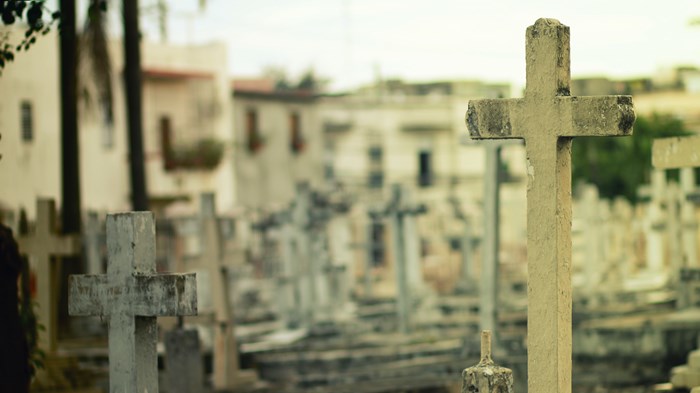This Love of Guns: It’s Way Beyond Our Understanding

Churches in California and Iowa. A supermarket in New York. An elementary school in Texas. A hospital in Oklahoma. A funeral service in Wisconsin.
Mass shootings have become so quotidian we are at risk of presuming this is simply normal – but it’s not, at least globally. The United States is the only country in the world with more civilian-owned firearms than people. We have a rate of death from gun violence higher than in Somalia, Syria or Afghanistan and far, far higher than in other countries with economically-prosperous democracies: eight times higher than Canada, 100-times higher than in the United Kingdom and 200 times higher than in South Korea or Japan.
The tragic commonness of gun violence in the United States is stunning to many people beyond the United States, including many fellow Christians. Over the past several years – as part of the research for a new book called Inalienable: How Marginalized Kingdom Voices Can Help Save the American Church – I’ve had the opportunity to interview a number of evangelical Christian leaders from beyond the United States. I often asked these global Christian leaders what was confusing or surprising to them about American Christianity. One common reply: guns.
“The love of guns,” Honduran pastor Luis Luna told me, “will always be beyond my understanding.” Honduras and other Central American countries also have serious problems with gun violence – fueled by drug cartels and criminal gangs – so that the U.S. also is plagued by gun violence is not necessarily surprising. What’s bewildering to Pastor Luna is the idea that Christians would champion gun ownership. He reflected on his astonishment at witnessing an American missionary insisting to a local congregation in a violence-marred community that they had a responsibility to arm themselves. “My God, no!” replied the shocked Honduran Christians, using the Lord’s name not in vain but in intercession.
“We associate firearms with killing,” explained Nicaraguan evangelical Mario Perez Gutierrez, “and it’s very difficult to conceive of how a Christian could be ready to kill someone.” After all, murder is prohibited by the Ten Commandments (Ex 20:13), and Christians believe that human life is sacred, made in the image of God (Gen 1:27). Adrian Hendarta – a pastor originally from Indonesia, where gun ownership is strictly regulated – notes that Christians there are confused as to why the U.S. government does not similarly limit gun ownership.
Like other technology developed in the last millennium, guns are not specifically mentioned in the Bible, of course. But weapons are: the government has been ordained by God to “bear the sword” (Rom 13:4) and John the Baptist, when advising soldiers, never advises them that they must disarm (Lk 3:14), so most Christians globally accept the role of the government in bearing arms to maintain order and restrain evil.
But Jesus’ response to Peter’s effort to violently defend him from unjust state action – “Put your sword back… for all who draw the sword will die by the sword” (Mt 26:52) – seems to most Christians globally the definitive statement on civilian evangelicals’ use of lethal weapons, or at least those – like the semi-automatic rifles used in most recent mass shootings – whose primary function is to kill human beings (as opposed to animals).
Even if faced with the threat of harm, many global Christians would look to the biblical teachings that we are not to “resist an evil person” (Mt 5:39) nor “repay anyone evil for evil” (Rom 12:17). We should not fear those “who kill the body but cannot kill the soul” (Mt 10:28) because we are ultimately and eternally secure in Christ – while the person whom we might kill in self-defense very likely is not.
In the United States, though, white evangelicals are both more likely to own guns than the overall population and less likely to support stricter regulations on gun ownership, and most evangelical gun owners cite “protection” (not hunting) as the primary motivator. Candidates seeking to appeal to evangelical voters proclaim their support for “God and guns” in the same breath – suggesting a syncretism that many global Christians view as idolatrous.
That view is also shared by many non-white evangelicals within the U.S. While few white-majority evangelical denominations have a stated denominational position on gun policy, the Asian American Christian Collaborative responded to the recent string of mass shootings with a biblically-rooted, policy-specific call for reforms that was also affirmed prominent leaders of national networks of Latino and African American Christians.
“We are called to bring attention to the dangers and sin of political idolatry,” the statement says, “especially when they lead to the destruction of life. As followers of Christ, our allegiance is primarily to Christ and His Kingdom. Christians must stand together to denounce all forms of idolatrous worship, including the idolatry of individual rights (and all its entailments) over God’s commandment to love our neighbors.”
Nearly four-in-ten white evangelicals believe that the U.S. Constitution – which includes the Second Amendment’s right to bear arms – is divinely inspired. Plenty of non-U.S. Christians admire the U.S. Constitution, but they’re troubled by the seeming equation of this human-composed document with a descriptor they would ascribe only to the Bible. Our sisters and brothers from other parts of the world – and from historically marginalized Christian communities within the U.S. – are challenging us to recognize guns as a Second Commandment concern, lovingly imploring white Christians to examine whether gun ownership has become an idol for many American Christians.
As my coauthors and I argue in Inalienable, the U.S. church has a lot to offer to the world – but we also have blind spots, and at a time when the white U.S. evangelical church is in many ways facing a spiraling crisis of moral credibility, we urgently need the humility to learn from and submit to the leadership of other parts of the Body of Christ.
In the midst of an epidemic of gun violence, heeding these voices that have historically been on the margins of American Christianity may not just save the U.S. church from syncretism, it may also save lives.
Matthew Soerens is a guest lecturer for Wheaton College’s Humanitarian and Disaster Leadership Master’s Program and is the coauthor of Inalienable: How Marginalized Kingdom Voices Can Help Save the American Church (InterVarsity Press, 2022).
The Better Samaritan is a part of CT's
Blog Forum. Support the work of CT.
Subscribe and get one year free.
The views of the blogger do not necessarily reflect those of Christianity Today.





















